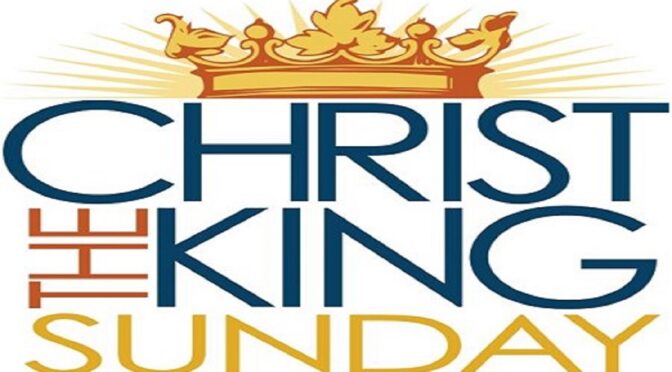Contents
Preamble
The Solemnityof Our Lord Jesus Christ, King of the Universe, popularly called the Feast of Christ the King, was instituted by Pope Pius XI in 1925. For the Roman Catholic Church, it was moved to the last Sunday in Ordinary Time in 1970. Traditionally, the feast cannot take place before 20th or after 27th of November. That means, it must be celebrated between 20th-27th November each year. The feast marks the end of the Ordinary Time and the Church’s Liturgical Year. It is followed by the Season of Advent. Pius XI’s intention for instituting this Feast was to combat secularism and atheistic thinking around the Globe. Many rulers and elites in various countries of the world had fallen dangerously prey to the notion that mankind do without God. Today, there are many religious rulers (because they are not leaders) who are worse than those secular rulers. Apparently, they seem to believe in God, but they are unbelievers and godless, doing everything possible and impossible to occupy this or that post in their various churches including the Holy Roman Catholic Church.
The Audience under the Cross
The Jewish Assembly (the Sanhedrin) laid a triple accusation against Jesus. When they brought Jesus before Pilate, they said “we found this man misleading our people; he opposes the payment of taxes to Caesar and maintains that he is the Messiah, a king” (Luke 23:2). Since the Romans were not interested in the religious accusations and condemnation of Jesus, the Sanhedrin quickly presented political motivations. By accusing Jesus of misleading the people, they meant he was discouraging them from being loyal to Rome. That he forbade people from paying tribute to Caesar is totally false (cf. Matt 22:15–22. As regards his claim of being the messiah and king, Jesus clarified this directly to Pilate (cf. John 18:33.36–37). Even the chief priests, scribes and Herod accused Jesus and maltreated him. Despite finding him innocent, Pilate preferred maintaining his earthly throne and handed Jesus over to be crucified. What a world!
Conclusion
Let us refer back to the four groups of people mentioned above who stood before the cross of Jesus. Do these groups in any way reflect our society? I think we should answer in the affirmative. How? The first group represents the general population of various nations. Generally, in the midst of injustice, this people stand and watch. They would want to do something but they cannot because they have no political and religious power to do so. The only thing they can do is to stand and watch and pray, hoping that one day, God would intervene.
FOR DETAILS, GET YOUR OWN COPIES OF THE BOOK “THE WORD OF LIFE:
SUNDAY REFLECTIONS” (vols. I‑II-III)!! The reflection for the 34th Sunday is found in The Word of Life, vol. III, pages 638–651. Happy reading!
For details on how to get it, contact the author on this link: https://m.me/uchennabiblia?fbclid=IwAR2yeg4a6sDGBp9QGkIvKj6FSADumMokN6lshdE0zuo-JHs6qOmlhA7jyHo
or email me at: postmaster@uchennabiblia.com
or simply send an SMS on 08116100926, and I will get back to you.

